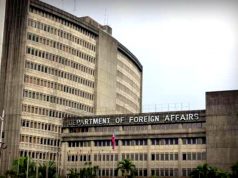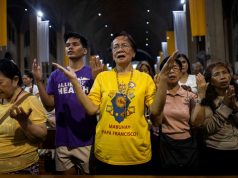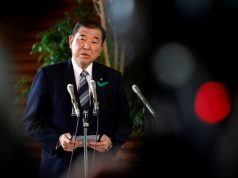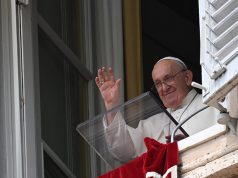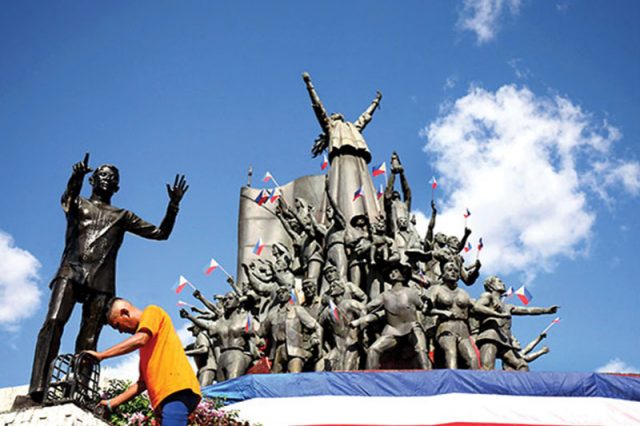
The Malacañang’s declaration of the historic EDSA People Power Revolution anniversary as a special working holiday for 2025 caught the attention of some Filipinos.
The Palace on October 31 released the official list of regular holidays and special or non-working holidays for next year through Proclamation No. 727 (series of 2024).
Regular holidays include observation of Holy Week, New Year’s Day, Labor Day, and dates with historical significance like Independence Day and Bonifacio Day.
Meanwhile, those declared as special non-working days are the Ninoy Aquino Day or the commemoration of the former senator’s death anniversary, the Feast of the Immaculate Concepcion of Mary, All Saints’ Day, and the last day of the year.
The only special working day declared was the commemoration of the 1986 People Power Revolution anniversary on February 25, which falls on a Tuesday in 2025.
Other additional special non-working days are Chinese New Year,
Black Saturday, All Saints’ Day Eve, and Christmas Eve.
The declaration of the EDSA Revolution as a working day sparked questions from social media users who noticed its non-declaration as a non-working day, compared to past administrations.
“Papunta na sa not-a-holiday ‘yung People Power Anniversary, lol,” a Filipino commented.
“Holidays!! Pero Edsa nandyan ‘working day,’ inuunti-unti. Malamang, next year, wala… revision [complete],” another online user commented.
“WTF is this? Why is EDSA a working holiday?” a Filipino asked.
“Bakit special working day na ang Feb. 25????????? Inu-unti [unti] na talaga,” another user wrote.
“Ayyyy???? ‘Di naman kayo masyadong halata, pinapapasok niyo kami ng EDSA Revolution!?” a different user exclaimed.
The EDSA Revolution anniversary was not declared as a holiday in 2024, earning backlash from some Filipinos who thought it was a “historical revisionism” done as the event is tied with the ousting of late dictator Ferdinand Marcos Sr. and his family from the Palace.
His only son, President Ferdinand “Bongbong” Marcos Jr., is the 17th president.
In 2024, the EDSA Revolution anniversary fell on a Sunday. However, the Feast of the Immaculate Concepcion of Mary also fell on a weekend this year and was declared a special non-working day.
RELATED: EDSA where?: Pinoys notice absence of People Power anniv in list of 2024 public holidays | Timing of February 24 EDSA anniv holiday announcement draws concerns
Sociologist Athena Presto previously said that there is no legislation declaring the EDSA Revolution anniversary as a “legal holiday.”
This was also pointed out by an online user this year.
“EDSA People Power anniversary again treated as a ‘special working day’. If you recall, PBBM did not declare 2/25 as a non-working holiday, because, in reality, there was no permanent law declaring People Power anniversary as such,” a Filipino wrote.
The People Power Revolution on Feb. 25, 1986, was a significant date in Philippine history since it “heralded an era of peace” after years of totalitarian rule under Marcos Sr., who placed the country in Martial Law for nine years.
The particular date saw the inauguration of late president Cory Aquino, wife of assassinated opposition senator and democratic icon Ninoy Aquino, as the country’s eleventh president.
The EDSA Revolution was a four-day occasion involving a series of public protests and demonstrations that culminated in a historic march along Epifanio de los Santos Avenue (EDSA), the main artery of Metro Manila.
The march was a manifestation of people’s sentiments Filipinos’ sentiments against “totalitarian rule,” according to the Official Gazette.
The totalitarian rule refers to Marcos Sr’s dictatorship after placing the country under martial rule from 1972 to 1981.
Human rights organization Amnesty International said the period “saw an unprecedented wave of torture, extrajudicial killings, and other serious human rights violations against peaceful activists and members of the public across the country.”
“From 1972 to 1981, some 70,000 people were imprisoned and 34,000 were tortured; over 3,200 people were killed,” it added.
On the last day of the revolution, Cory was sworn in as Marcos Sr’s successor and the first woman president.
Meanwhile, Marcos Sr. and his family fled to Hawaii, where the patriarch spent his final days.






